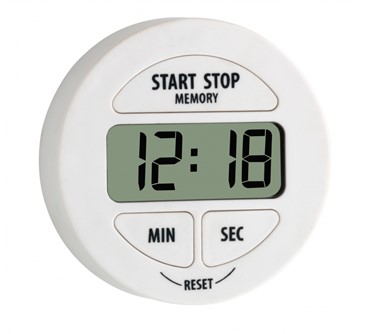Tatarstan's agricultural exports to China increased by 6.5%.

If in the first six months of last year, CHINA accounted for 7% of total agricultural exports, this year it has reached 13.5%.
As Deputy Minister of Agriculture and Food of the Republic of Tatarstan Rustem Gainullov noted at a briefing dedicated to the International Forum "SPROUTS: RUSSIA and China - Mutually Beneficial Cooperation," China is a strategic partner for Tatarstan in the agro-industrial complex. Foreign economic relations are actively developing between the republics. Mutually beneficial relations strengthen the partnership and are in line with the goals of the national project "International Cooperation and EXPORT."
In the first half of 2025, Tatarstan shipped 2,700 tons of oats, 9,500 tons of vegetable oil, and 195 tons of FLOUR to China. Oats andPeas .
Furthermore, the range of products exported to China has expanded this year. While only barley and flour were shipped to China from January to June last year, this year they have been supplemented by oilseeds and legumes, which are showing positive growth compared to the previous year. For example, over 3,500 tons of food peas, 400 tons each of rapeseed and sunflower seeds, and almost 2,000 tons of flax were exported. Processed grain products – beet pulp (over 5,200 tons) – were also exported. Flour shipments tripled, and vegetable oil shipments increased by almost 88%.
At the III International Forum "SPROUTS: Russia and China – Mutually Beneficial Cooperation," which will be held in Kazan on August 18-19, 2025, two sessions will be devoted to agriculture. The first session, "Partnership in Agriculture: Russian-Chinese Prospects" (organized by the Ministry of Agriculture of the Russian Federation), will take place on August 19 from 10:00 to 12:00. The session will discuss mutual trade in agricultural products, export prospects, and successful cases of Russian exporters.
Another session, "Entering the Chinese Market for Export-Oriented Companies" (organized by the Ministry of Agriculture of the Republic of Tatarstan ), will also be held on August 19 from 1:00 to 2:30 PM. Here, experts will discuss market requirements , logistics, certification, and government support measures. Participants will receive practical recommendations, learn about successful cases, and have the opportunity to ask questions to ministry representatives and exporters.
Read together with it:
- The IEA sees a risk of a decline in oil production in Russia due to sanctions.The IEA sees a risk of reduced oil production in RUSSIA due to US sanctions , but maintains its production forecast. According to the IEA, Russian oil exports will remain unchanged.There is a "significant downside risk" to Russia's oil production forecast due to US sanctions, the International Energy Agency (IEA) said in a report.BLOOMBERG . The agency's experts believe that the latest US sanction...
- "Коллективы АПК способны решать любые задачи даже в непростых условиях". Назаров о заслугах сельхозпроизводителейЮрий Назаров 13 ноября, Минск. Обеспечение продовольственной безопасности страны - большое достижение трудовых коллективов аграриев, отметил управляющий делами Президента Республики Беларусь Юрий Назаров на торжественной церемонии награждения государственными и иными наградами работников АПК Управления делами Президента Республики Беларусь, передает корреспондент БЕЛТА. Торжественная церемония наг...
- Министр сельского хозяйства предлагает долгосрочные контракты для стабилизации цен на продуктыЛут подчеркнула, что за последние десять лет рост цен на основные продукты в России не превысил общий уровень инфляции, а в некоторых категориях даже отстает от нее. Тем не менее, наблюдается устойчивый рост себестоимости продукции из-за увеличения цен на технику, энергоресурсы и логистику. Для контроля ценовой ситуации министерство сотрудничает с депутатами и рядом других ведомств. Также она упом...
- Russian agriculture: self-sufficiency continues to growThe industry has a track record of implementing new technologies and increasing productivity. RUSSIA is already confidently self-sufficient in grain, MEAT, fish, vegetable oil, and SUGAR. Grain and vegetable production is also forecast to be higher this year, despite unfavorable weather conditions in some regions. The Ministry expects historic highs for some crops and continues to support agricult...
- Sustainable growth of the food and processing industries in BashkortostanIlshat Fazrakhmanov, Deputy Prime Minister andThe regional Minister of Agriculture noted that the development of these industries provides the population with essential food products and contributes to increased exports. Since 2020, agricultural exports from the region have doubled. Since the beginning of 2......
- Колумбия: При экспорте скота сертификация и прослеживаемость больше не являются необязательнымиВысококачественное животноводство, особенно при экспорте, требует сертификации и прослеживаемости. Это необходимые условия для выхода и конкуренции на многих международных рынках, а также на некоторых всё более требовательных внутренних рынках. Колумбийское животноводство не является исключением из этих правил, и, хотя предстоит ещё многое сделать, всё большее число ферм и компаний внедряют эти ме...
- Китайский рынок мяса: консолидация, меры безопасности и проблема субпродуктов«Мы завершаем выставку CIIE в Шанхае, в целом хорошую выставку, где мы видим консолидированные цены, как это было с начала года, но в то же время рынок ожидает решения по защитной мере, определения которой должны быть даны в конце ноября», — сказал он Valor Agregado Agro. Лидер пояснил, что глобальная ситуация характеризуется «колебаниями на международном рынке, вызванными интенсивной геополитичес...
- В Тульской области уничтожили 24 кг санкционных сыров и мясных продуктов из ЕвропыВо время совместной проверки с транспортной прокуратурой из оборота было изъято 24,45 кг сыров и мясных изделий, произведенных в таких странах, как Дания, Испания, Норвегия, Италия, Ирландия и Франция. Ввоз данной продукции на территорию России запрещен в соответствии с указом Президента, касающимся специальных экономических мер. Изъятая продукция была ликвидирована путем измельчения и денатурации...




























































